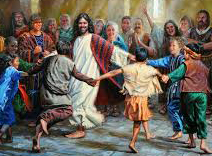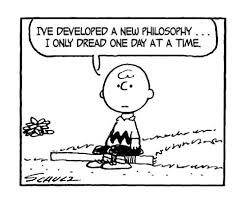Author’s Note: I originally published this devotional two weeks ago, but my blog site developed some issues. While it posted on my personal webpage, www.drkirklewis.com, it did not get sent to my subscribers or shared on my social media pages. We’ve managed to repair our social media access (I think), but the subscriber links are still down. We’re working on it and hope to have things back in order soon. I sincerely apologize.
Background Passages: Hebrews 13:3; Luke 6:31-36; Philippians 2:5-8
Cecil Rhodes, the British statesman and financier who used his wealth to endow the famous Rhodes Scholarship, had a reputation for his elegant fashion sense and impeccable dress. One year, Rhodes invited one of his scholarship recipients to his home to dine with him and a number of England’s well-to-do.
The young man came from a poor family. He wore his best suit to dinner, though stained and a little too small. He was embarrassed upon his arrival to find all the other guests in full evening dress. Rhodes, dressed in his tuxedo, was about to enter the dining room when he saw the young man and his discomfort. He went back upstairs, appearing at the dining table a few minutes later in a shabby, old blue suit.
Rhodes understood the distress the young man felt. Rather than add to the misery of another, he set aside his personal preference to connect with this young man of promise.
Empathy.
Empathy feels what another feels. Sees the world from another’s perspective. Understands as fully as possible what another experiences. It is one thing to feel, see and understand the life of another. It’s a great first step. But, it seems to me, true empathy compels us to act…to walk an extra mile.
We can imagine horror experienced by the family whose home is wiped out by flood or fire. We have difficulty at times imaging the struggles of learning disabled when learning comes easily to us. We struggle in our response to those who are depressed if we ourselves have never experienced hopelessness. Empathy is difficult.
Empathy is also inconvenient, especially when life is going our way. I can see the plight of the poor and the afflicted, but do not wish to sully my hands in the work it would take to help them work through their own difficulties. We rationalize the distance we keep by blaming them for their own predicament.
As he closed out his letter, the writer of Hebrews exhorted believers to “Remember those in prison as if you were their fellow prisoners and those who are mistreated as if you yourselves were suffering.”
Those encouragements go far beyond simply feeling sorrow or sympathy for those who are troubled. It calls upon us to feel with them as if the suffering were our own. To put ourselves in their shoes. To see the world…and ourselves…through their eyes.
Jesus, the personification of God’s empathy toward a lost world, shows us the full expression of empathy as he introduces to us his concept we know as the Golden Rule. He taught that one could sum up the entire content of the Old Testament law and prophets by “doing to others what you would have them do to you.” To act in ways toward others as you wish others to act toward you.
The concept Jesus introduced was not a new concept. Many other religions and philosophies offer a similar message, though often presented in negative form. In ancient Egypt, the statement read, “That which you hate to be done to you, do not do to another.” In ancient Greece, “Do not do to others that which angers you when they do it to you.” Self-preservation is not empathy.
When Jesus asks us to treat others as we want to be treated, he is not saying: “I’ll scratch your back if you’ll scratch mine.” It’s so much more than that. It is a proactive directive. Empathy takes pre-emptive action to meet the needs of others because we feel the distress as if it were our own. So, we act, treating others as we would hope others would treat us if we found ourselves in similar circumstances.
We’re not simply to avoid doing things that hurt others because we don’t want to be hurt in the same way. Instead, every action toward others should be expressed in the love of Christ. He’s saying: Take the risk of giving your time, your energy, your resources…in essence, giving yourself… to ease the pain of another whether that person is a friend or stranger.
Jesus followed this command by telling us how to live an empathetic life. He explained, “If you love those who love you, what credit is that to you? And if you do good to those who are good to you, what credit is that to you? Even ‘sinners’ do that…Love your enemies, do good to them, and lend to them without expecting to get anything in back…Be merciful (other translations use the words ‘compassionate,’ ’empathetic’), just as your Father is merciful.”
Living a Christ-like life teaches us that religion and faith are not a just set of beliefs. It is not the dogma of the day. Christianity, if it is to be viable and real in our lives, is about what we do for the poor with too little to eat, too little to wear and little or no shelter over their heads. It is about what we do for the sick and the elderly, in desperate need of our touch. It is about what we do for the disenfranchised of society who find themselves distanced from the opportunities we enjoy.
Jesus teaches us that empathy, as difficult and inconvenient as it can be at times, ought to compel us to act differently when we encounter human need. To understand the needs of others as if they were our own.
We have the perfect example in the life of Christ. Paul said as much to the Philippian church.
“Your attitude should be the same as Christ Jesus: Who, being in very nature God, did not consider equality with God something to be grasped, but made himself nothing, taking the very nature of a servant being made in human likeness.” Leaving the throne of God to become man is the ultimate in empathy. A deliberate, purposeful, life-giving act of empathy that led straight to the cross.
Today, it seems most people walk the world blind to the feelings and needs of others. If they disagree with us, if they live differently than us, if they respond to the challenges they face in ways we would not, we chastise them for not reacting as we assume we would react in similar circumstances. I’m not sure we will ever impact the world for Christ until we can walk a mile in their shoes.
I hope God challenges all of us this week to embrace the empathy of Christ as we encounter the needs of the world around.



